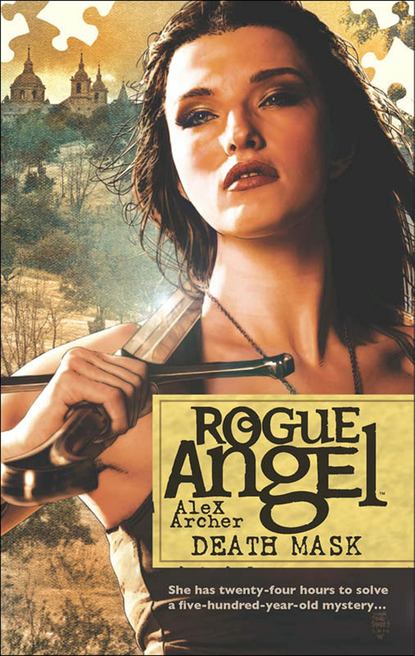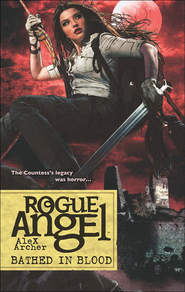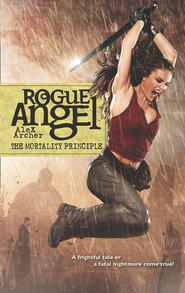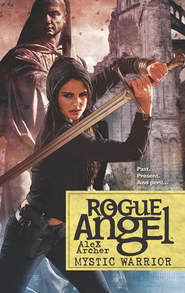По всем вопросам обращайтесь на: info@litportal.ru
(©) 2003-2025.
✖
Death Mask
Автор
Год написания книги
2019
Настройки чтения
Размер шрифта
Высота строк
Поля
25
26
27
28
29
30
31
32
33
34
35
36
37
38
39
40
Epilogue
Copyright (#litres_trial_promo)
PROLOGUE (#u1c5f033e-aa37-5642-bed7-bc2054a075c0)
Late-night traffic roared along Madrid’s Gran Vía. These cars were status symbols driven by men in the throes of their midlife crises. Overpowered engines strained in the chassis of superlight metal. Beautiful people stumbled in and out of bars. There was no room for ugliness or poverty in this make-believe world that pretended not to be in turmoil. They partied hard and loud, the constant babble of noise disguising the rotors of the approaching helicopter.
It was a quarter to midnight, not quite the magical hour when the luxury sports cars would turn into pumpkins and the men behind the wheel into the rats they were deep down.
The men on board the helicopter paid no attention to the world below. They had their mission objectives and wouldn’t be distracted from them by little black dresses. They had the job timed down to the second. They had covered every possible parameter and were prepared for every eventuality. They would be long gone before the first alarm sounded.
The helicopter circled what passed for one of the only skyscrapers in the downtown area, giving the six men on board time to confirm they were good to go, and then they pulled ski masks down over their faces. This was a well-drilled team, used to dealing with high-risk ops, infiltrations and extractions, scenarios which could turn on a dime. That killed complacency before it could get a foothold in their ranks. Every op carried danger. Planning minimized the risk but never truly took it away.
The first man jumped out seconds before the skids had settled on the roof of the office block. Head down, he ran hard, arms and legs pumping, toward the infiltration point. The arrogance of money had made their job so much easier. A helipad on the roof of an office block? It was like taking candy from a baby.
Nine seconds after the initial breach lines were tethered to the building, the first three men stepped off the edge of the roof, beginning to rappel down the side. The second trio was nine seconds behind them. The building’s panoramic windows were made from high-tensile glass, essentially bulletproof. The men drew level with the target’s floor, pulling off to pause on either side of his office. The front three men attached devices right, left and top-center on the huge window. Bullets were one thing, concentrated explosives quite another. A hand went up, each finger closing one second after the other, counting down to the detonation. Noise-reduction earbuds saved their hearing as the charges blew, and the men turned their faces away to protect their eyes as the glass shattered.
The window blew inward, showering the three men deadlocked in a late-night meeting in the Rojo International offices with deadly rain that cut through their designer threads as if they were paper.
Less than a minute had passed since the team had rolled out of the helicopter. Fifty-five seconds, to be precise.
All six team members swung inside the gaping wound in the side of the skyscraper before the last glass fragments had started their downward spiral to the street below.
A hail of gunfire tore into the ceiling, meant purely to terrify.
It had the desired effect.
A second volley of gunfire had two of the suits dancing in jerky rhythm as their bodies were riddled with bullets. Blood spattered the wall behind them, leaving silhouettes of the dying clearly visible.
The third man sat motionless in the midst of the carnage. Well, not quite motionless, the team leader realized, seeing the man’s eyes dart to the Mark Rothko painting on the wall that had caught some of the blood spray. The arc of red was incongruous with the blocks of color. The man seemed more concerned about the damage to his painting than he was about the two men bleeding out on the expensive silk rug.
He said nothing.
The boardroom door burst open and another man—broad, burly and dead before he took his first step inside the room—managed a single shot before a hail of bullets took him down. The bullets cut through his torso, the impact driving him back through the doorway.
“Two more,” the leader said, motioning left and right for two of his men to go on the hunt while the other three followed him.
The man at the table didn’t so much as flinch as cable ties were slipped around his wrists and cinched so tightly they drew blood. He looked up at the security camera high in the corner of the room, making sure it saw everything. The red light winked back. It was recording.
“You,” the leader said to one of his men, who crossed the room quickly and blacked out the lens with spray paint.
Ninety seconds had passed since the helicopter had touched down.
Everything was on schedule. Clockwork precision. The silent alarm would have been tripped the second the window shattered. Police response times were fast when it was big money they were protecting, but there was no sign of any kind of armed response yet. The leader had it timed to two minutes twenty-five for the first siren. Anything after that was sloppy, and he wasn’t about to let sloppiness carry the day. He’d planned for two twenty-five; he’d stick with the plan. More gunfire ripped through the office, followed by the crash of furniture being tipped over.
There was a single shot after that, then silence.
The two men sent on patrol returned to the boardroom as a harness was being strapped to their target’s chest. One of them gave a single nod, confirming that everything had been taken care of.
No one had imagined an “unbreakable” window on the thirty-second floor posed a substantial security risk. Not the architects. Not the men who had taken up residence in the high castle of Rojo International’s offices. And most importantly, not the man being strapped into the harness by his team.
“Move,” the team’s Number Two barked, hauling their captive to his feet.
The man resisted, but that only resulted in pain as Number Two delivered a punishing blow to his gut that doubled him up, and as his head came down, a crunching right uppercut that sent him staggering sideways. “Move,” Number Two repeated, and this time the man did as he was told.
“You are going to pay for this,” he snarled. Rather than another blow, his defiance was paid back with silence—a wad of tissues forced into his mouth and a strip of gaffer tape slapped across it. Number Two dragged him to the window and stood only inches from the edge, grabbing a fistful of his hair and forcing him to look down.
The drop was dizzying.
“A spectacular view, I’m sure you’ll agree, Mr. Braden?” the team leader said, bracing himself against the window frame. “An entire city quite literally at your feet. Look at it. Drink it in. It could well be the last thing you ever see. I’d hate for you to forget it.”
* * *
GARIN BRADEN WASN’T used to people treating him like this. He wasn’t a victim. He’d lived his entire long life by one simple credo: “Do unto others before they can do unto you.” A man didn’t get to Garin’s age by being a victim. He pushed back against the hand on his head, but the man didn’t relinquish his grip. Garin felt the air rush into his face. It was all too easy to imagine the sidewalk rushing toward him. He swallowed. He wasn’t in control. He didn’t like that. He tried to run through his options, but with the harness pinning his arms, and the assassin’s fingers tangled in his hair, there was little he could do. Sadly, learning how to fly wasn’t possible, though it was looking increasingly like a necessity. Lacking wings, Garin felt hands on the center of his spine and then he was kicking against nothing, falling.
For a second—the silence between terrified heartbeats—he was suspended in the air thirty-two stories above the Madrid streets before the line hooked through his harness snapped taut and stopped his plunging descent. And then he was rising as he was hoisted toward the roof.











